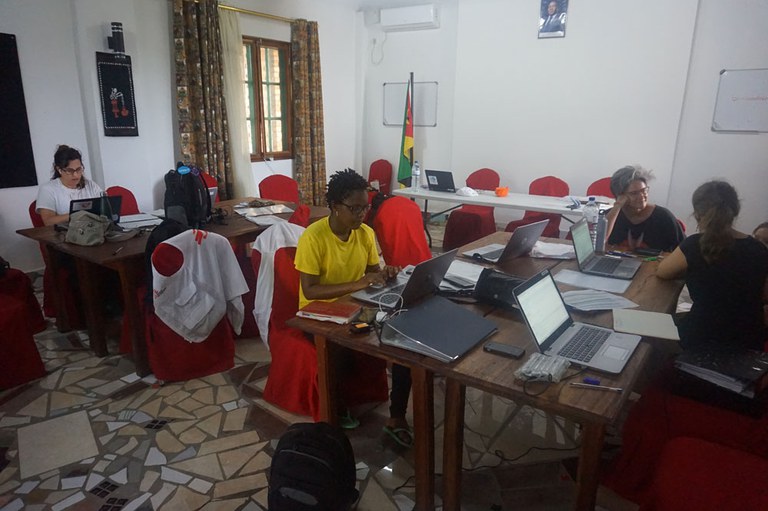However, these numbers are just the reflection of TSF’s main concern: its beneficiaries, be it humanitarian actors or affected populations.
4 coordination centres connected, become then crucial information and reports shared by the tens of humanitarian organisations to coordinate and speed up their relief operations thanks to a reliable internet connection. That has been the case for Mike, coordinator at the Matarara centre, for the Samaritan's Purse’s field hospital teams in Buzi, and for Sebastian Rhodes Stampa, UNOCHA Deputy Humanitarian Coordinator at the coordination centre set up at Beira airport: “TSF is a key partner for UNOCHA…if we can’t communicate, nothing works.” And also for Doctors Without Borders’ (MSF) teams at the cholera treatment centre near Dondo, who continue to benefit from a connection installed by TSF.

For the isolated and unconnected people, who lost everything because of the catastrophic impact of the cyclone, including connection to their loved ones, the thousands of minutes of calls offered through our Humanitarian Calling Operations (HCO), become then sources of hope. It was the case for people like Elena, Isabel, or Guida, displaced in temporary shelters, who finally managed to talk to their family. Or of the family who regained hope, after days of apprehension, when they discovered that their relative luckily made it. “The family told him that they were in a ceremony of his death, because they thought he died. When he called, then the family started crying and you could see the cheers coming from his face”, Paulo, TSF local volunteer, tells us.
Food, shelter or medical assistance are all essential elements of the humanitarian response, but communication is also as much a lifeline as all these different forms of assistance. Sometimes, just one minute to say to your loved ones that you are alive can make such an invaluable difference. “As soon as I arrived in the field, I realised that it was really important, there were people who were looking for their families, or their families were looking for them and they couldn’t find each other. They were desperate, they didn’t know what was happening” Paulo continues.
Since the first phase of the emergency reached its end, our teams left the country, but remain in contact with the organisations supported on the ground to ensure continuity in the assistance provided. At the end of the mission, some equipment will also remain in Maputo to ensure a rapid response in case of new disasters in the region.
602 deaths, 1.85 million people in need, 4,072 cholera cases and 73,000 displaced people. These are the latest official figures on the impact of Cyclone Idai in Mozambique. Again, just numbers, which rarely outline the full picture. For TSF teams, what will remain, will be the “we were waiting for you,” “what TSF did here was very important for the community,” “thanks again for the great work you do,” and the smiles of our beneficiaries when they could hear a familiar voice. And even more the feeling that we brought hope to desperate people, lost in the middle of a disaster.

